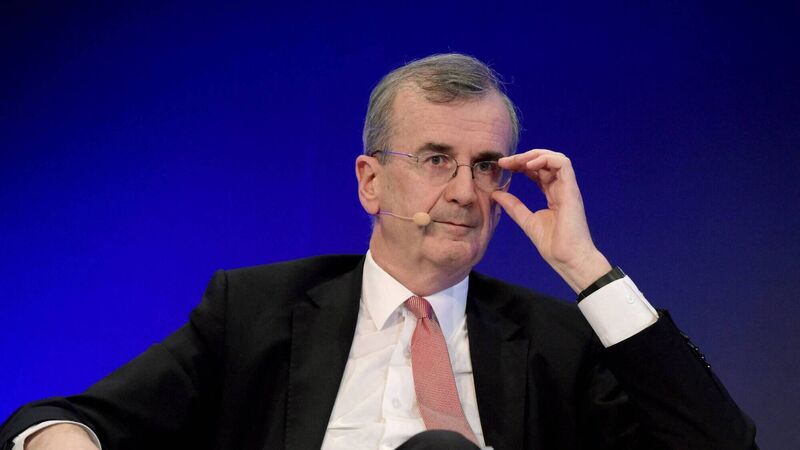Case for further ECB rate hike has 'weakened after spike in bond yields'

Governor of the Bank of France Francois Villeroy
European Central Bank (ECB) policymaker Francois Villeroy de Galhau has said that the case against a further interest rate hike has strengthened after long-term bond yields spiked higher.
The ECB raised its main interest rate last month to a record 4% after 10 successive hikes aimed at bringing inflation back to its 2% target by 2025.
Though possibly excessive, a recent spike in long-term bond yields is tightening financing conditions, said Mr Villeroy de Galhau, who is also governor of the Bank of France.
"Since then, we've had good inflation numbers and in parallel an increase in long-term rates... It can be considered to be excessive but it helps tighten financing conditions in the European economy," Mr Villeroy told German business newspaper Handelsblatt.
"So today I don't think an additional increase in ECB rates is justified," he said.
Mr Villeroy said that rates were likely now to remain as high as necessary at a plateau and that markets' rate cut expectations on both sides of the Atlantic had in the past been too optimistic.
The implied cost of borrowing for European governments eased slightly on Thursday after racing higher in recent days.
The yield or interest rate on the German 10-year government bond traded at 2.86%, Ireland's 10-year bond traded at 3.32%, and the UK's equivalent bond traded at 4.53%
Meanwhile, Bundesbank president Joachim Nagel said eurozone inflation is falling but the fight is not yet won and the high rate of underlying price growth remains worrisome.
"Inflation is now falling again, but the 'greedy beast' has not yet been defeated," Mr Nagel said in a speech.
Eurozone inflation fell sharply in September and could approach 3% by the end of the year, but will likely flatline through next year before resuming a downward trend towards the bank's 2% target in 2025.
"The ECB must maintain a restrictive stance until we can ensure that inflation returns to our medium-term target of 2%," Mr Nagel said.
Markets see only a small chance of a further rate hike as economic growth has come to a standstill and expect the ECB's next move to be a cut, with June or July seen as the likely start date for unwinding the hikes.
Mr Nagel also pushed back on calls, including from ECB board member and future Bank of Italy governor Fabio Panetta, for the eurozone to create a centralised fiscal capacity.
Some form of common budget would allow the ECB to fight inflation more effectively as a single monetary policy must now align with 20 different national budgets, a complex task that often leaves monetary and fiscal policy out of sync.













